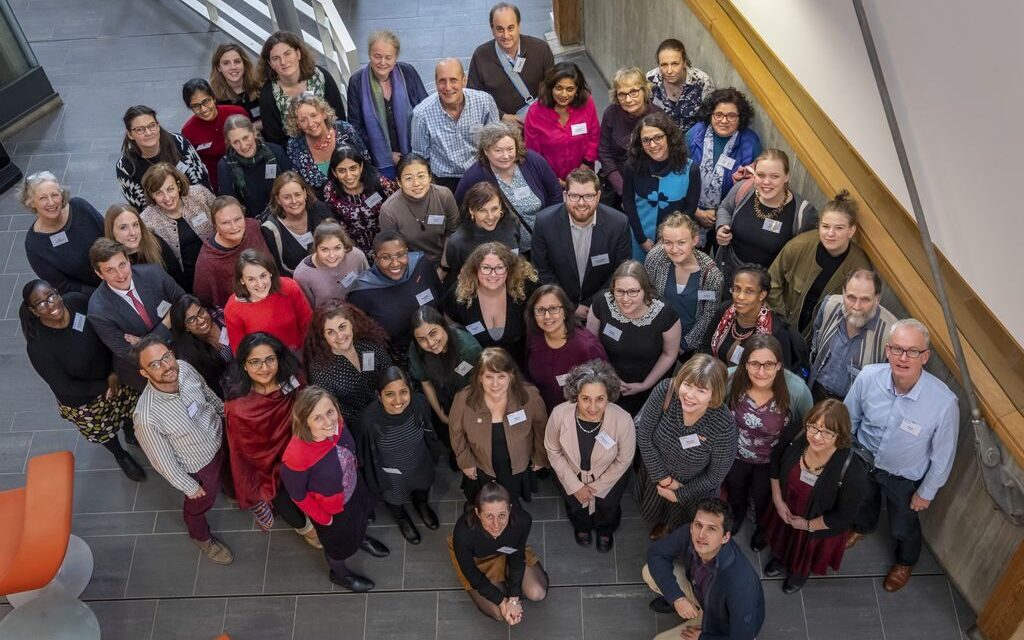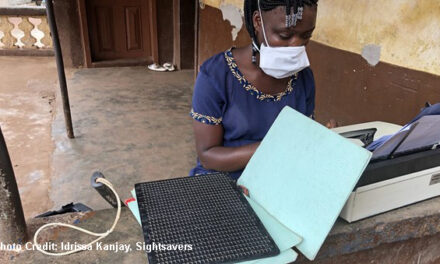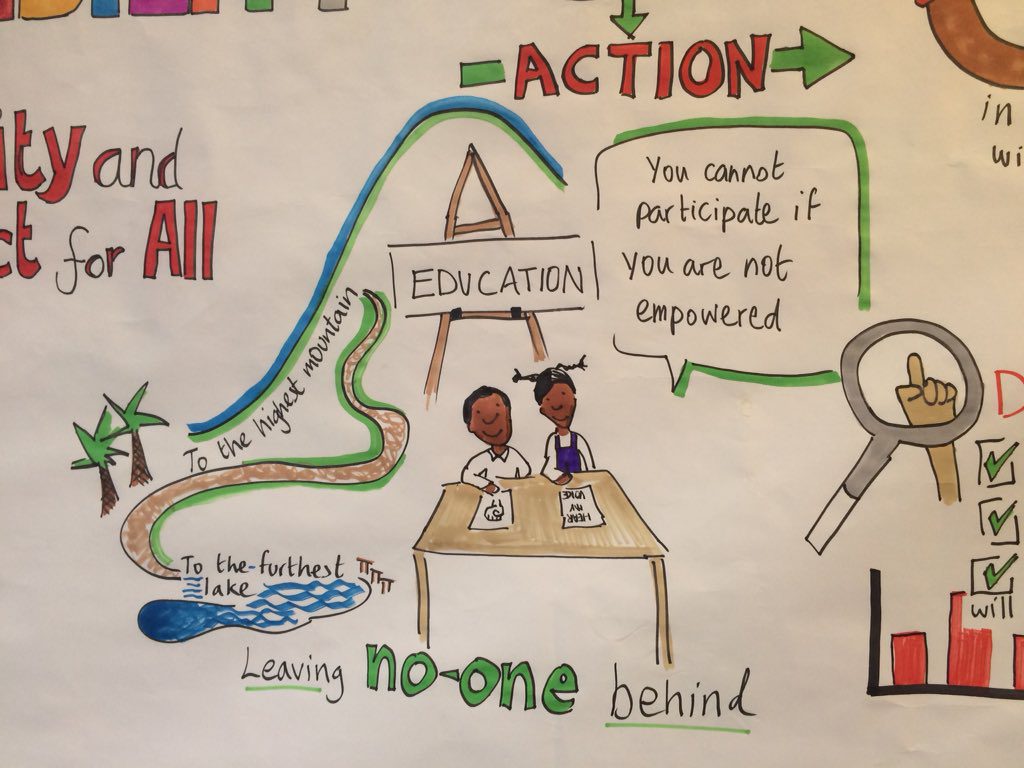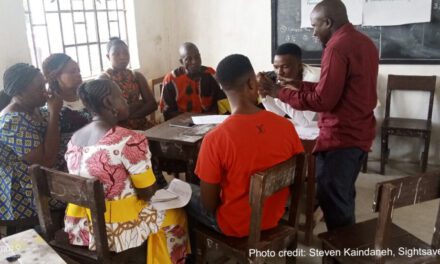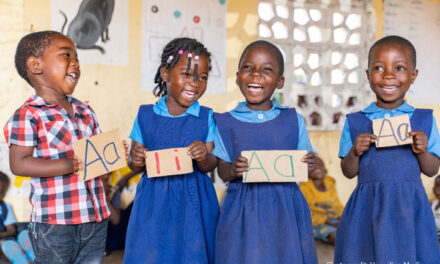This blog has been written by Seema Nath; a third year PhD student at the Faculty of Education, University of Cambridge, and a member of CaNDER and REAL Centre.
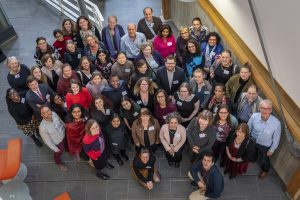 On 15th March 2019, the Faculty of Education, University of Cambridge hosted an event “From Promises to Action: Education and Disability in the Global South” in partnership with CaNDER and the REAL Centre. Over 60 delegates attended from different international development agencies, Universities and international non-government organisations (NGOs), from within UK and from different European countries. The event included presentations on recent research, hands-on activity and a panel discussion, all of which culminated in the launch of a new edited book: “Education and Disability in the Global South: New Perspectives from Africa and Asia.”
On 15th March 2019, the Faculty of Education, University of Cambridge hosted an event “From Promises to Action: Education and Disability in the Global South” in partnership with CaNDER and the REAL Centre. Over 60 delegates attended from different international development agencies, Universities and international non-government organisations (NGOs), from within UK and from different European countries. The event included presentations on recent research, hands-on activity and a panel discussion, all of which culminated in the launch of a new edited book: “Education and Disability in the Global South: New Perspectives from Africa and Asia.”
Looking forward
Reflecting on the journey so far, Dr Nidhi Singal started the event by stressing on the need for more sophisticated scholarship in the field of disability and education. She emphasised that answers to successful inclusive education do not lie in global affirmations, or replicating models of inclusion from the Global North, rather there is a pressing need to identify and invest in local solutions. It is important to acknowledge changing educational and socio-cultural landscapes in Southern contexts and seek answers to questions regarding the how, rather than a continued focus on why? The need for quality rigorous evidence was stressed, as efforts need to be made to move beyond discussion and commentary papers.
Not just why, but how?
This key message was evident in the presentations and discussions throughout the day. Different presenters emphasised that in moving forward, actions towards effective inclusive education need to be engage with contextual realities.
Professor Tom Shakespeare drawing on his research in Uganda, Kenya, and Zambia stressed the need to identify and address barriers that ordinary persons with disabilities report and that removing these barriers is a good investment for development. He emphasised the need for the inclusion of voices of persons with disabilities who have experienced success (as defined by the local context). Based on his analysis he concluded that these success stories are not just down to personal resources but can also be attributed to a multitude of factors, such as family support, NGO grants etc., that enable individuals with disabilities to succeed. He empathised that education was a vital component of this success.
Developing further on the theme of being sensitive to local contexts, Dr Elizabeth Walton argued that training teachers on differentiated instruction without taking into account the complexity of their current work is in itself an unsuccessful undertaking. Her research based in postcolonial South Africa on teacher professional learning[i] argues that when providing training to teachers on inclusive education, the institutional context and other constraints faced by teachers such as lack of space, class sizes, assessment challenges, enormous workload, lack of support, etc. should be taken into consideration. She stated that ‘inclusion is what we do to push against exclusion and the debate for inclusion needs to include all those who are excluded’. She advocated against falling for the silver bullet fallacy and instead to acknowledge the histories and geographies of exclusion in certain contexts and work within and beyond the possibilities and constraints of the context.
In his research on ‘supporting quality provisions for children with disabilities in resource constrained early childhood development and education (ECDE) services in rural Malawi’[ii], Dr Paul Lynch introduced the concepts of emotional well-being and involvement of the children with disabilities to measure the quality of the ECDE services. As part of the study, staff members at 24 community-based childcare centres (CBCC) were trained for two weeks to support children with disabilities and this was followed by a nine-month intervention period in the centres. This intervention had a positive impact on learning, behaviour, social cohesion and friendships among children as well as individual well-being. Dr Lynch emphasised the need for sustainability of such interventions.
Dr Maria Kett talked about the systemic issues in delivering inclusive education across different contexts. She reiterated the need for more rigorous evidence to highlight if inclusive education is working and exploring the alternatives available. Drawing on research conducted in Kenya, Zimbabwe, and Sierra Leone[iii], she expanded on the role of teachers in delivering inclusive primary education and emphasised the need to make learning fun for both the students and the teachers. She argued that if this fails for either, then there is the risk of leaving behind both children (especially children with disabilities) and their educators. She recommended the three Rs model as a strong analytical tool with its focus on – Rights, Resources, and Research (Singal, 2015) to ensure accountability of inclusive education programmes.
Problematising inclusive education
In order to understand how ‘inclusive systems’ function in schools and society; it needs to be viewed as a complex and dynamic system. Based on research in Bhutan[iv], Dr Matthew Schuelka postulated that ‘inclusion’ itself is a form of exclusion and hence a paradox. He argued that classroom culture could itself be disabling, resulting in particular difficulties for children with disabilities. As classrooms become more diverse, teachers find themselves faced with challenges, especially in terms of addressing increased diversity, particularly if teachers are not incentivised. He cautioned against the danger of falling into ‘resource trap’ debates, wherein the argument holds that if teachers had more resources then they would be able to do more for all the students.
To deliver more robust inclusive education programmes, there is a necessity to move beyond simplistic understanding of what inclusive education entails and whom it is aimed at. Dr Elina Lehtomäki debunked some common assumptions guiding education development with a focus on inclusion. She noted that while most education projects are short term, in contrast successful system wide reforms in education take between 10-50 years. Based on her own experiences she noted that development agencies need to integrate and value local resources. She stressed the need to collaborate with stakeholders, especially students with disabilities and their families to identify resources. She emphasised the research community’s responsibility to include the voices of students and families to create systemic and institutional transformation. Inclusion should be emphasised not just in the knowledge creation process but also during the research communication process while creating policy dialogues and only then, will contextually relevant information come to the fore to build strong education systems. This focus on accessing, using and communicating research is important in bringing about change.
Towards answering the big questions around inclusion
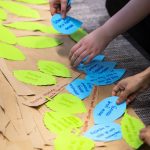 Delegates also participated in a creative workshop facilitated by PhD students Carly Christensen and Hannah Ware (members of CaNDER), which focused on identifying challenges facing inclusion, and possible solutions. Focusing on solutions identified by participants the following two key points emerged:
Delegates also participated in a creative workshop facilitated by PhD students Carly Christensen and Hannah Ware (members of CaNDER), which focused on identifying challenges facing inclusion, and possible solutions. Focusing on solutions identified by participants the following two key points emerged:
- Teachers should be provided with good quality pre-service and ongoing professional development to support the education of all children, including those with disabilities. It is not merely about training teachers but also supporting them. Participants emphasised the need to explore possibilities of bringing in specialist teachers, involving practitioners, and community facilitators to support the education of all students.
- Inclusion is not merely about access to primary education but thinking of ways to support children with disabilities move through the school system- primary to secondary and beyond. It is also about training parents, teachers, and other stakeholders to support an individual with disabilities transition into employment and/or other life choices.
The need for research focused on identifying and understanding intersecting variables of race, gender, different types of impairments and poverty was emphasized. Echoing some of the overarching themes from the day, delegates called for a more contextualised interrogation of strengths and challenges in different systems in supporting efforts towards inclusive educations. Here the voices of different stakeholders (e.g. teachers, students with disabilities and their peers, parents) was regarded as particularly important to capture. There was an overwhelming acknowledgment of the need to learn from best local practices.
This event created an important space for these crucial discussions to take place. These perspectives are also echoed throughout the chapters in the book, where drawing on empirical insights, contributors have made a strong case for the need to account for different contextual realities, problematising mainstreaming education systems, and working across stakeholders groups in efforts towards supporting inclusive education. We will carry forward these conversations further through the Cambridge Network for Disability and Education (CaNDER).
[i] Walton, E., Nel, N.M., Muller, H. & Lebeloane, L.D.M. (2014). ‘You can train us until we are blue in our faces, we are still going to struggle’: Teacher professional learning in a full-service school. Education as Change, 18(2) 319–333.
[ii] McLinden, M., Lynch, P., Soni, A., Artiles, A., Kholowa, F., Kamchedzera, E., & Mankhwazi, M. (2018). Supporting Children with Disabilities in Low-and Middle-Income Countries: Promoting Inclusive Practice within Community-Based Childcare Centres in Malawi through a Bioecological Systems Perspective. International Journal of Early Childhood, 50(2), 159-174.
[iii] Kett, M., Deluca, M., Crew, M. (2019) The Preparedness of Teachers to Deliver Inclusive Education: Evidence from Pan African field research. In “Education and Disability in the Global South-New Perspectives from Africa and Asia”. Bloomsbury. London.
[iv] Schuelka, M. (2019). Advancing a Comparative Case Study Approach Towards Education and Disability Research: An Example from Bhutan. In “Education and Disability in the Global South-New Perspectives from Africa and Asia”. Bloomsbury. London.

